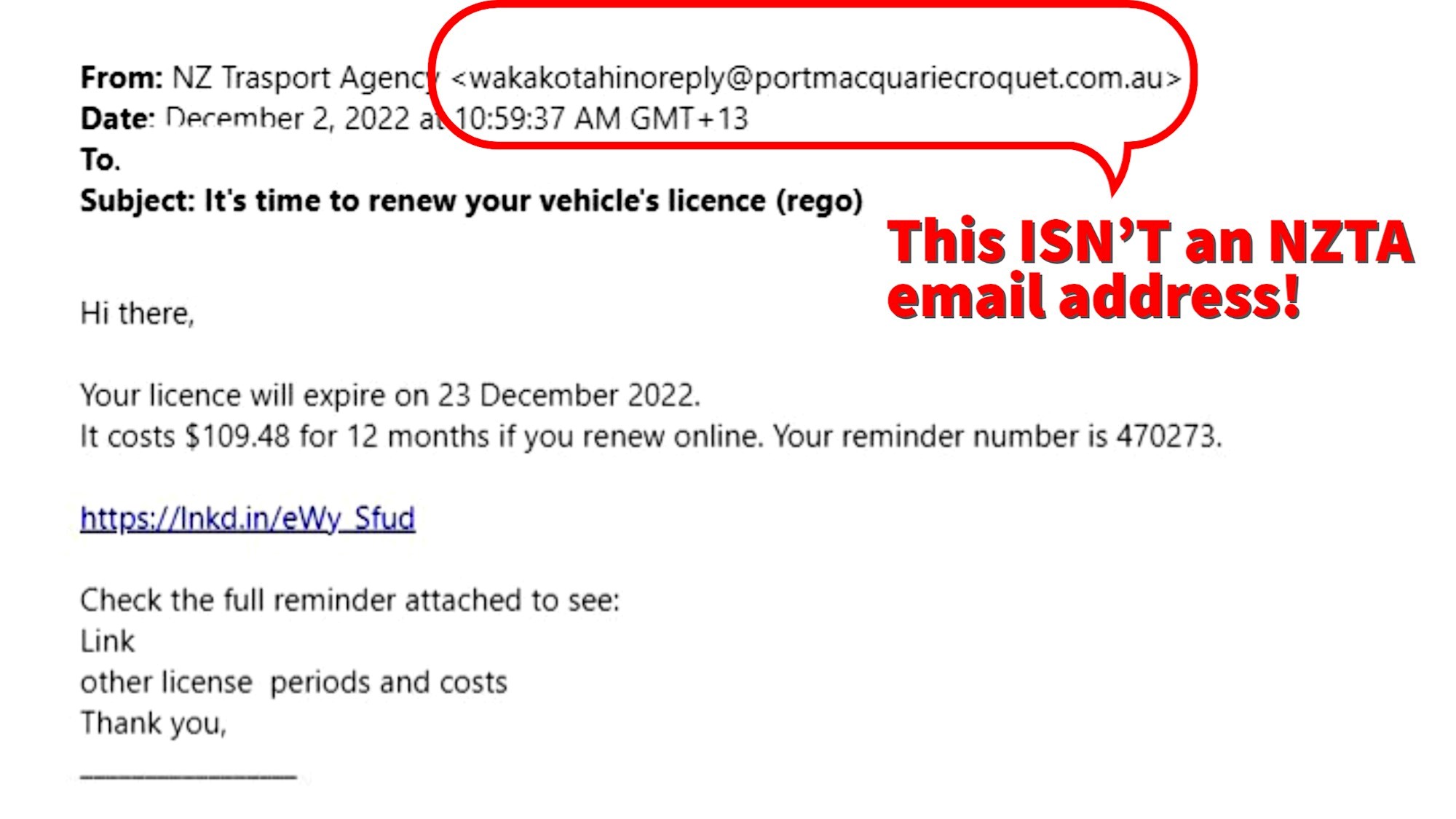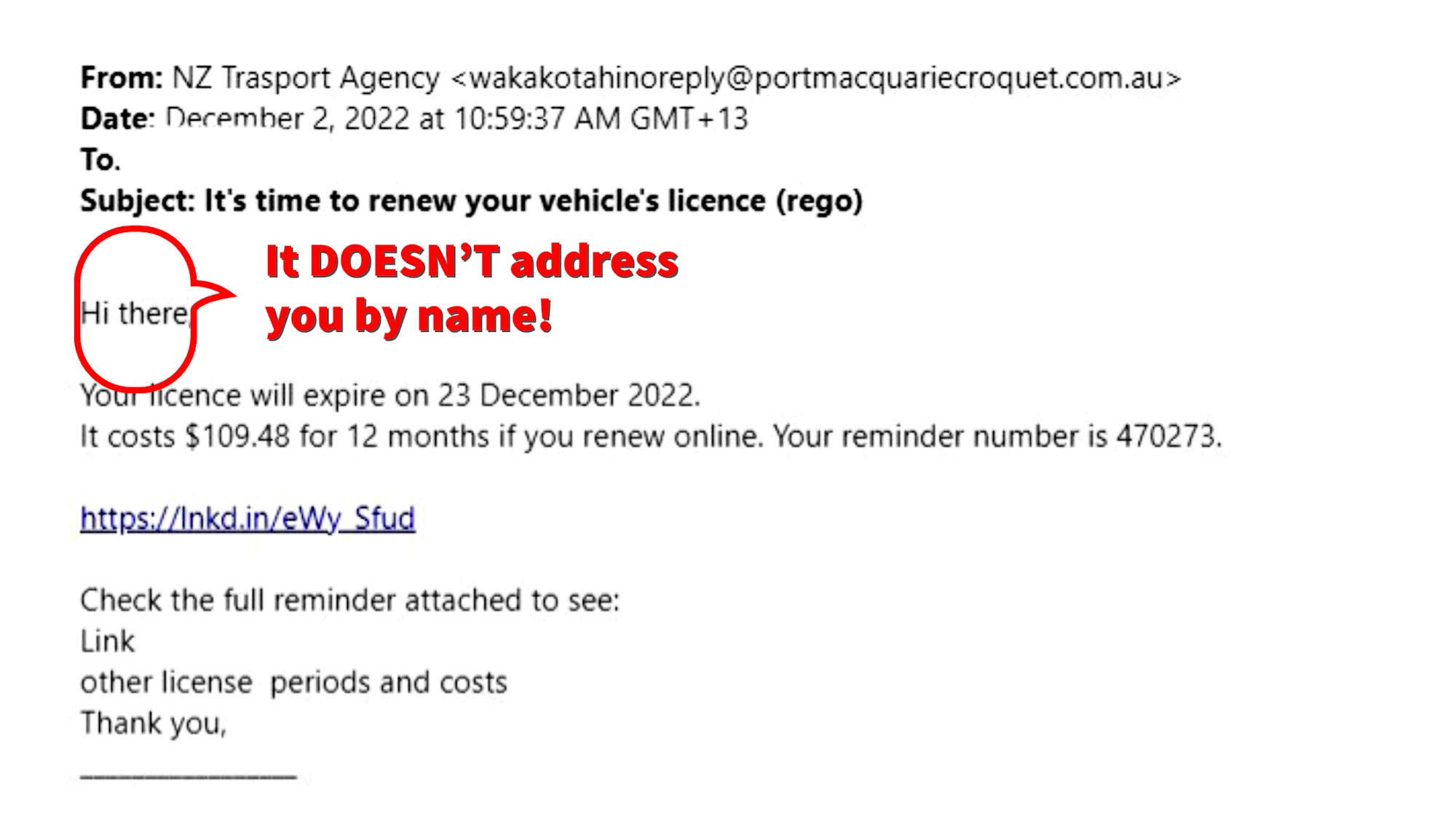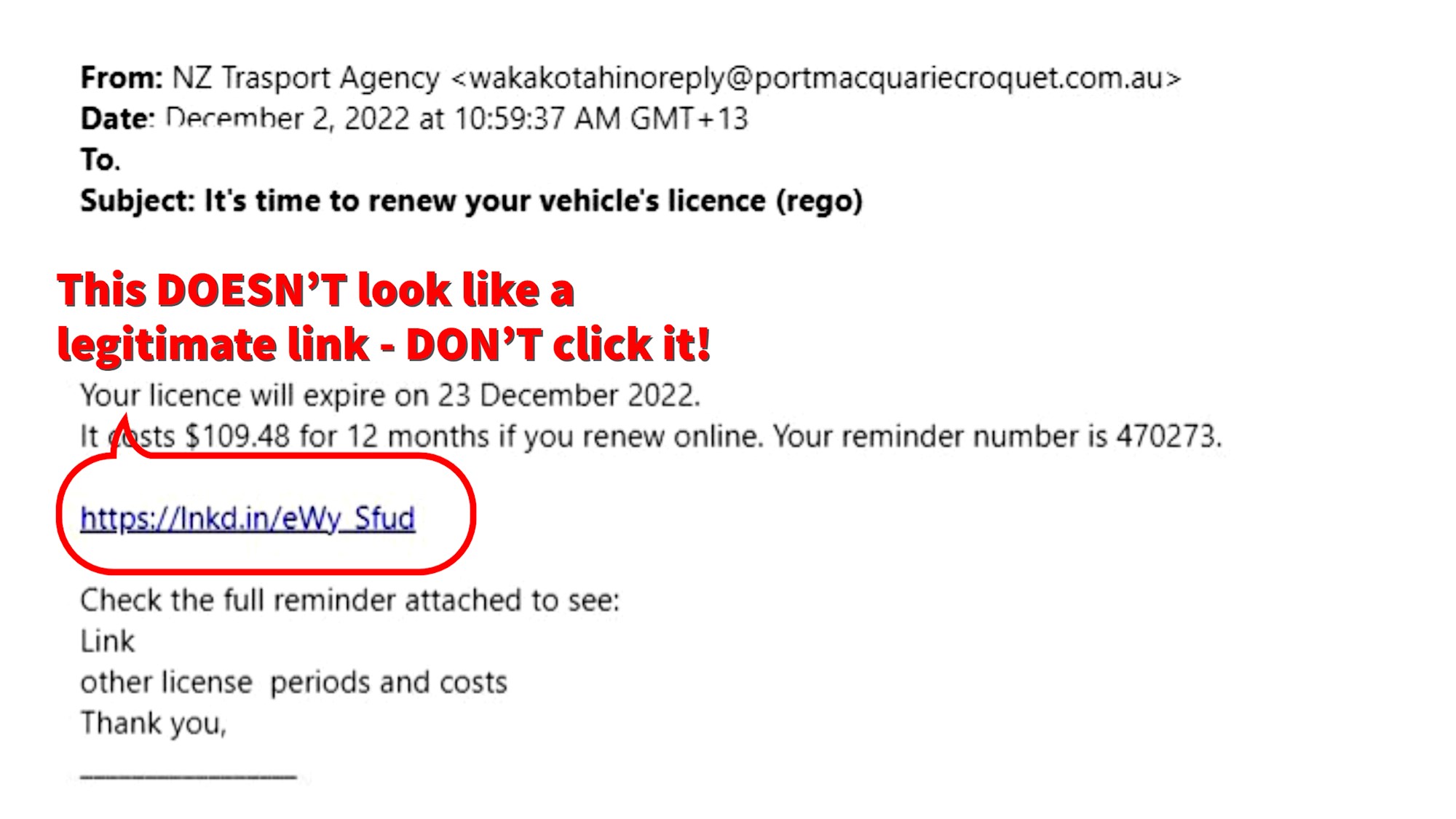Kiwis are being hit yet again by a fake NZTA email scam. These types of scam emails are constantly circling, and Kiwis could find themselves out of pocket if they fall for them.
This one was sent to us recently, with the email subject line reading "It's time to renew your vehicle's licence (rego)." It goes on to explain when the "licence" will expire, and how much is due. It also explains how renewal can happen online.
There's then a link that takes you to a website that looks very similar to the NZTA official website, and a PDF that looks frighteningly similar to an official NZTA letter.
This week on Zooming with DRIVEN David runs us through the red flags to look out for in an email like this, which you can watch above or read through them below.
You can also watch the full episode of Zooming With DRIVEN here, where we also talk about the all-new Range Rover Sport, an Auckland apartment for supercar owners, Volkswagen's amusing Instagram blunder and play a new game that will get all the movie and TV car nerds (like David, Damien and Dean) thinking.
But in the meantime, here's what you need to look out for on those dodgy NZTA fake emails!
- How to avoid scammers when buying or selling vehicles online
- Hundreds of Kiwis receive fake NZTA email scam, here are the red flags
- How to avoid falling into the trap of a motoring scam
- Buyers' Guide: Car-buying scams
But here are the red flags:
1. The email address
This email has been sent from "[email protected]". This is clearly not a legitimate email address. 
2. Does the email mention your name?
An official email would typically address you personally. "Dear Dean," for example. This scam simply says "Hi there."
3. Does the body of the email include any links to external websites?
While it is normal for legitimate emails to send you links to their websites, if something seems fishy, don't click the link. 
You should never click a link if you suspect it might be a scam.
If it's too late, and you've hit the link in panic (it happens), check the URL. Is the URL the official website? As you can see in this NZTA example, the URL is not the NZTA official website. Although it does look frighteningly similar.
Scam emails are extremely common these days. But if you do happen to come across one, make sure you report and delete it. Waka Kotahi NZTA have more information on receiving and reporting scam emails on its official .govt website.







